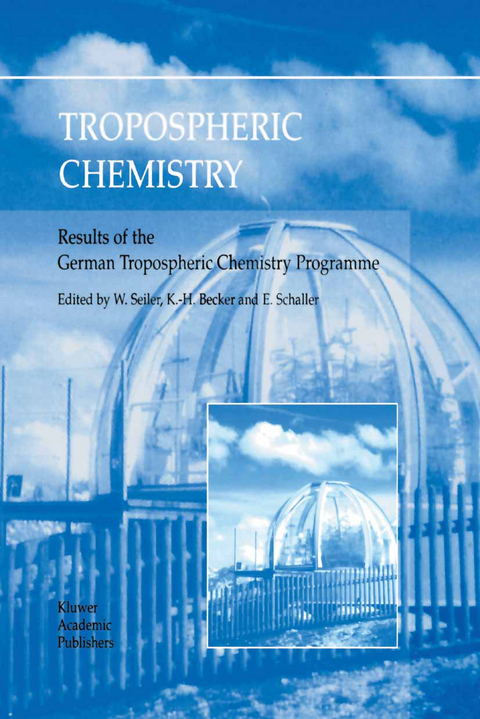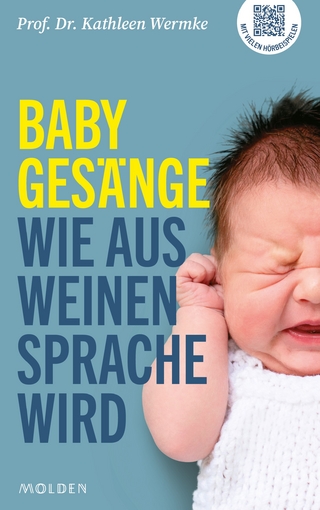
Tropospheric Chemistry
Springer-Verlag New York Inc.
978-1-4020-0694-4 (ISBN)
which successfully passed the QA-process (i.e., met the Data Quality Objectices) were included into the TFS-central data bank. The following summary of major results obtained in TFS would not have been possible without the contribution of many experimentalists and modellers participating in this project. I would like to thank these colleagues for their support. All participants are grateful for the financial support by the BMBF and for the assistance by the Projekttragerschaft (UKF-GSF-Miinchen). Garmisch-Partenkirchen, WOLFGANG SEILER February 2002 DEVELOPMENT AND APPLICATION OF A MESOSCALE MODEL HIERARCHY FOR THE DIAGNOSIS AND FORECAST OF THE DISTRIBUTION OF POLLUTANTS OVER GERMANY AND EUROPE Journal of Atmospheric Chemistry 42: 5-22, 2002. 5 (c) 2002 Kluwer Academic Publishers. An Empirical, Receptor-Based Procedure for Assessing the Effect of Different Ozone Mitigation Strategies WOLFGANG FRICKE, WINFRIED VANDERSEE and STEFAN GILGE Deutscher Wetterdienst, Meteorologisches Observatorium, Albin-Schwaiger-Weg 10, D-82383 Hohenpeissenberg, Germany, e-mail: wolfgang.fricke@dwd.de (Received: 6 November 2000; in final form: 29 May 2(01) Abstract.
The paper presents a new receptor-based approach for investigating the effect of differ- ent mitigation strategies on surface ozone concentrations. The empirical approach relates measured ozone concentrations to 3-D back trajectories and European precursor emission data (NOx, VOC, isoprene). These are the only parameters used as input. Following a description of the method, results for two German stations, an urban and a rural mountain site, are described, and discussed in detail.
Development and Application of a Mesoscale Model Hierarchy for the Diagnosis and Forecast of the Distribution of Pullutants over Germany and Europe.- An Empirical, Receptor-Based Procedure for Assessing the Effect of Different Ozone Mitigation Strategies.- Short-Term Ozone Forecasting with a Network Model System during Summer 1999.- Studying the City Plume of Berlin on 20 July 1998 with Three Different Modelling Approaches.- On the Importance of Reliable Background Concentrations of Ozone for Regional Scale Photochemical Modelling.- Comparison of Five Eulerian Air Pollution Forecasting Systems for the Summer of 1999 Using the German Ozone Monitoring Data.- On Modeling Dry Deposition of Long-Lived and Chemically Reactive Species over Heterogeneous Terrain.- Anthropogenic and Biogenic Emissions as Well as Deposition of Trace Gas Constituents.- Emission of Biogenic Volatile Organic Compounds: An Overview of Field, Laboratory and Modelling Studies Performed during the Tropospheric Research Program’ (TFS) 1997–2000.- Development of Emission Models and Improvement of Emission Data for Germany.- Evaluation of Modeled Spatially and Temporarily Highly Resolved Emission Inventories of Photosmog Precursors for the City of Augsburg: The Experiment EVA and Its Major Results.- Quality Assurance in TFS for Inorganic Compounds.- Quality Assurance of Hydrocarbon Measurements for the German Tropospheric Research Focus (TFS).- A Database for Volatile Organic Compounds.- Process Studies on the Formation of Oxidants and Oxidation Capacity.- Ozone and PAN Formation Inside and Outside of the Berlin Plume — Process Analysis and Numerical Process Simulation.- Chemical Mechanism Development: Laboratory Studies and Model Applications.- Free Radicals and Fast Photochemistry during BERLIOZ.-Verification of the Contribution of Vehicular Traffic to the Total NMVOC Emissions in Germany and the Importance of the NO3 Chemistry in the City Air.- Actinic Radiation and Photolysis Processes in the Lower Troposphere: Effect of Clouds and Aerosols.- Hydrogen Peroxide, Organic Peroxides and Higher Carbonyl Compounds Determined during the BERLIOZ Campaign.- Ground-Based and Airborne Measurements of Nonmethane Hydrocarbons in BERLIOZ: Analysis and Selected Results.
| Erscheint lt. Verlag | 31.7.2002 |
|---|---|
| Zusatzinfo | VII, 492 p. |
| Verlagsort | New York, NY |
| Sprache | englisch |
| Maße | 155 x 235 mm |
| Themenwelt | Sachbuch/Ratgeber ► Natur / Technik ► Natur / Ökologie |
| Naturwissenschaften ► Biologie ► Botanik | |
| Naturwissenschaften ► Biologie ► Ökologie / Naturschutz | |
| Naturwissenschaften ► Geowissenschaften ► Meteorologie / Klimatologie | |
| Technik ► Umwelttechnik / Biotechnologie | |
| ISBN-10 | 1-4020-0694-2 / 1402006942 |
| ISBN-13 | 978-1-4020-0694-4 / 9781402006944 |
| Zustand | Neuware |
| Informationen gemäß Produktsicherheitsverordnung (GPSR) | |
| Haben Sie eine Frage zum Produkt? |
aus dem Bereich


